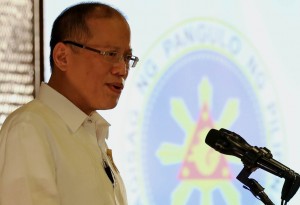The mayors of Luzon on Wednesday pledged an all-out effort to “attain inclusive growth” in their localities in a Luzon Governance Declaration that extolled President Benigno Aquino’s administration for several initiatives that are now “transforming the local economic landscape.”
The Declaration was signed at the end of a two-day Luzon Island Cluster Conference attended by more than 500 local chief executives under the auspices of the League of Municipalities of the Philippines (LMP), headed by Mayor Leonardo “Sandy” Javier of Javier, Leyte.
The mayors, in a press statement, showed their support in particular for the Grassroots Participatory Budgeting Process and the National Community-Driven Development Program that make local consultation a major component in identifying programs and projects where funding by national agencies is prioritized.
Fiscal discipline
It also brought the municipal mayors into a “closer and more productive partnership” with the national government.
The Declaration endorsed a motion that would institutionalize the GPBP and the NCDDP in the national expenditure program and allow LGUs to implement all public infrastructure projects and increase their allocations.
The Declaration said the mayors would ask Congress to fasttrack the consolidation and approval of measures amending pertinent provisions of the Local Government Code of 1991.
One key amendment, if approved, would increase the shares in the national taxes of LGUs from the current 40 percent to 50 percent, and include in the new formula the collections of the Bureau of Customs on imported goods in the computation of LGUs shares, and national internal revenue taxes collected by the Bureau of Internal Revenue (BIR), Abesamis said.
Amendments
Among other things, the Declaration also approved a proposal, through a series of LMP resolutions, to request the following from the National Government:
- The procurement and distribution of at least one police patrol vehicle for every municipality through a Memorandum of Agreement between the LMP and the Department of Interior and Local Government (DILG).
- The transfer of full operational control over the municipal police force to local chief executives “while respecting the one national-civilian police force policy in order to adequately address local crime incidents and maintain peace and order in the community.”
- An 80-percent share of the Department of Health in the enrollment of poor beneficiaries in the PhilHealth program, with the concerned municipalities to pay the remainder for the benefit of their constituents.
- The extension of the DSWD’s 4Ps program to assist all beneficiaries until they are able to get jobs as well as the Kalahi-CIDSS program.
